House cats are beloved companions, and making an end-of-life decision for your furry friend is always painful and stressful. But knowing the specifics, such as how much it costs to put a cat down and ease their pain, can make the process much easier.
Many cat owners don’t expect the costs associated with euthanasia and often don’t set funds aside or even know what they’re paying for. Humanely letting go of your pet can vary widely in costs, ranging from $50 to more than $1000 due to the many factors involved.
This article covers everything you need to know about euthanizing your cat, what to consider during the process, and how much you should be ready to pay when it’s time.
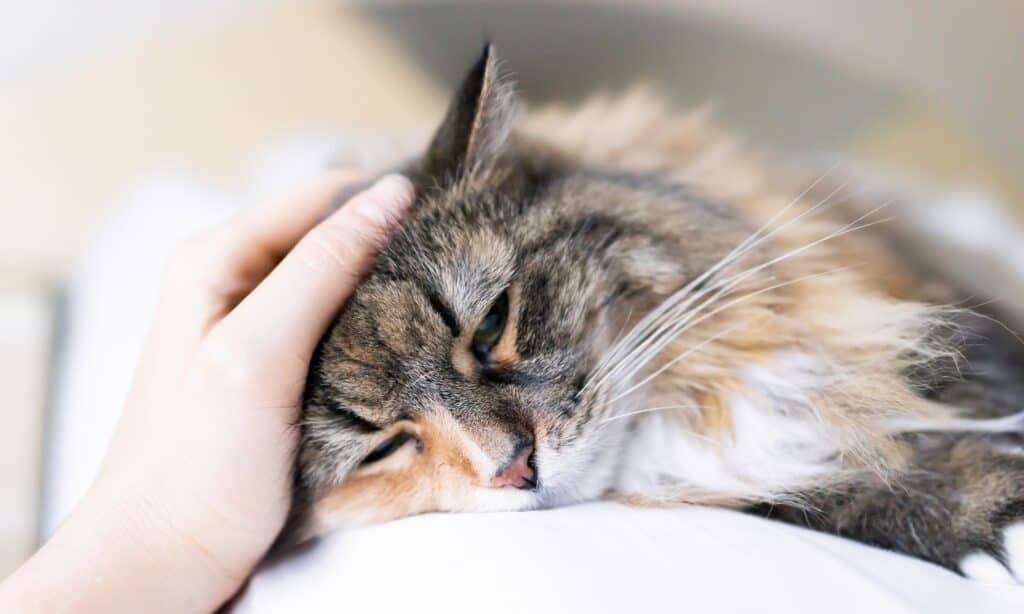
Putting a cat down is incredibly difficult, so its best to be aware of potential costs in advance.
©iStock.com/krblokhin
How Much It Costs to Put a Cat Down
There may be many reasons you want to consider euthanasia as an option for your cat. Putting your pet to sleep may be the most compassionate option if he or she is old, sick, in extreme pain, or otherwise suffering.
Your vet is an invaluable advisor when it comes to making the right decision on whether to or how to proceed. Cat euthanasia conducted at a veterinarian’s office can cost $100-300, depending on where you live.
Vets can also travel to the home to perform the procedure, where prices range from $300 to up to $500. While it may be more comfortable and appropriate for the moment to euthanize your cat surrounded by loved ones in a safe-feeling place, home visits often cost more due to the time required by the vet.
Euthanasia is most often administered via an injection. The vet will tranquilize your pet to help them relax and then follow with an injection of a death-inducing drug. The chemicals will irreversibly stop brain function, gently putting your cat to sleep.
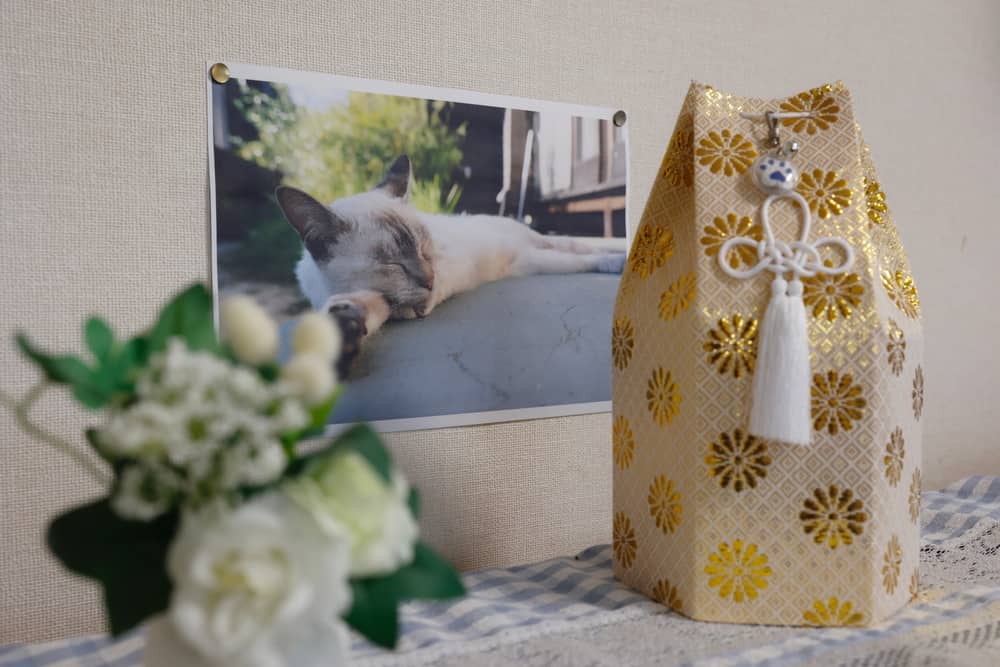
You can choose to keep your pets ashes following a private cremation.
©umaruchan4678/Shutterstock.com
Cost of cremation
After the procedure, the remains must be properly disposed of. Cremation is the most common process, charged separately from the euthanasia procedure. Depending on the crematorium, which can be on-site at the vet or off-site, costs can range from $50 to $300.
Your cat’s weight will impact fees, as will the travel requirements to get its body to the crematorium. This is partially what makes at-home euthanasia even more costly.
Where Can I Go to Put My Cat Down?
Euthanasia is a painless, humane operation that relaxes your cat and helps them peacefully release from suffering. Any veterinarian’s office and most vet hospitals will be able to complete the procedure, whether you make an appointment or visit an animal urgent care.
In-home euthanasia is also available in most areas, though it’s important to research options available near you in advance. An in-home vet visit lets you say goodbye to your cat in a familiar, comfortable space. Family members and other pets can say their goodbyes at their own pace, and loved ones will surround your cat.
You also have a choice of options regarding your pet’s remains. A private cremation ceremony will allow you to keep your cat’s remains, and you can ask your vet ahead of time for any sentimental keepsakes from your pet, such as an urn or paw print. Alternatively, you can bury your cat at home or in a pet cemetery.
If you wish, the vet will give you time to spend alone with your cat to say your final goodbyes. The veterinarian will transport your pet to the cremation or burial facilities and let you know when to pick up their remains.
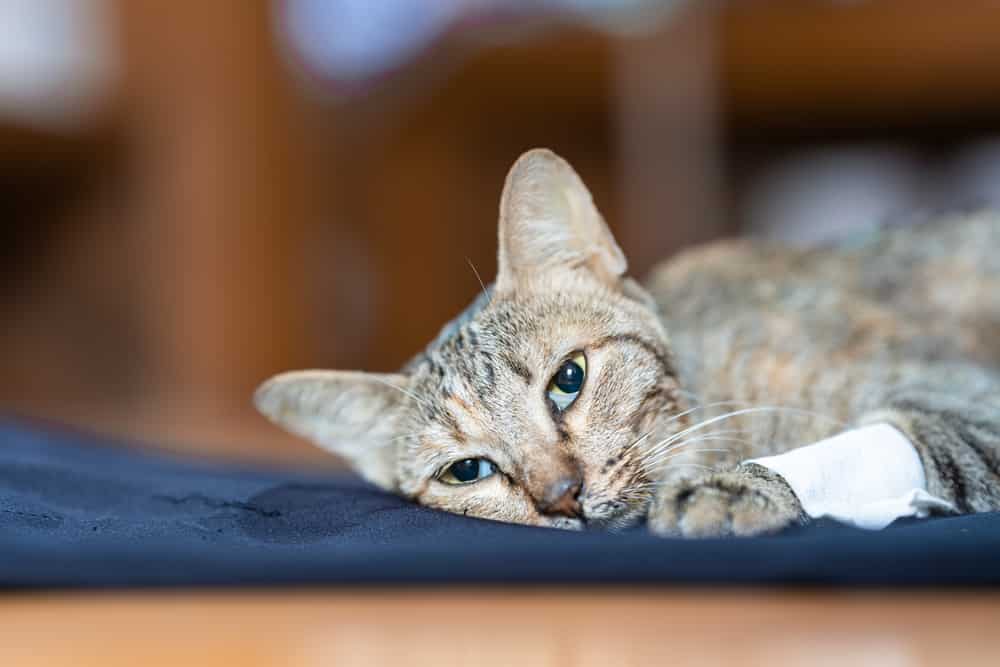
Your vet is a helpful guide during your cat’s end of life, who can help make the final moments easier.
©Oporty786/Shutterstock.com
What to Do If I Can’t Afford to Put My Cat Down?
Other options are available if your pet is suffering and financial constraints bar you from affording euthanization. Local animal shelters or rescues may offer free services or help set up a payment plan to cover costs.
The American Society for the Prevention of Cruelty to Animals (ASPCA) will also usually perform euthanasia at lower costs while still providing compassionate service. The Animal Humane Society also offers the procedure for $90, only charging additional fees if you choose to cremate your pet.
While this may be the least desirable option if your cat is suffering, you can also allow your pet to pass naturally at home. It’s essential to handle the remains as quickly as possible and keep the body cool until it can be disposed of, cremated, or buried.
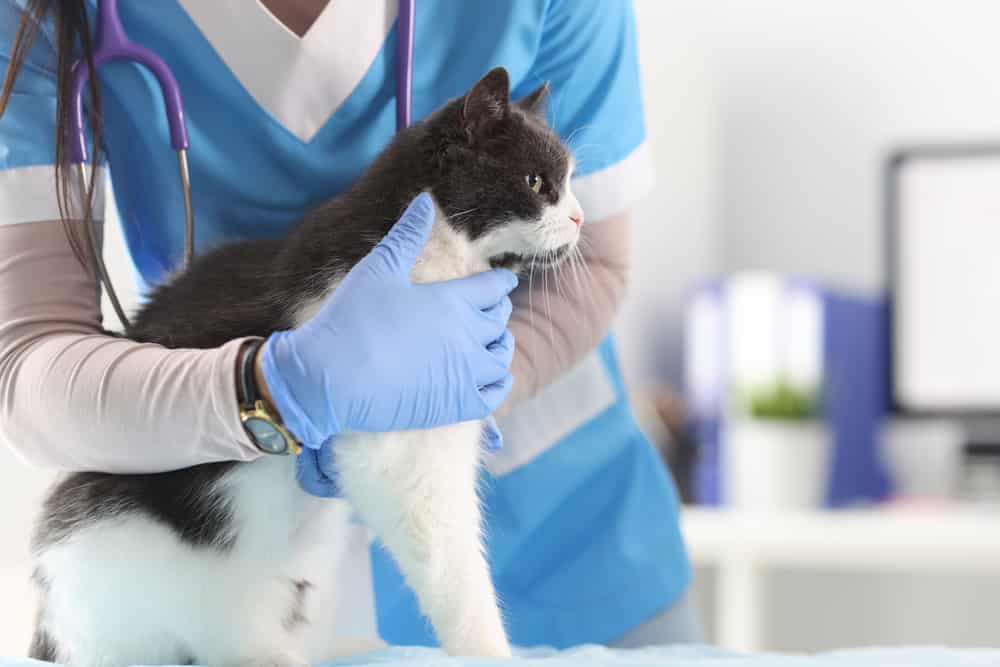
If a vet is unavailable, some animal shelters and humane societies can help you with your cat’s end of life process.
©H_Ko/Shutterstock.com
When Should Consider Euthanasia?
If your cat’s suffering outweighs its capacity to enjoy life, euthanization may be the kindest option. Your pet may still socialize and experience pleasure, but our primary responsibility is to minimize suffering if they’re in pain. This is especially true if your vet has explored all available treatment plans for your cat’s diagnosis.
Some signs that your cat may no longer enjoy a good quality of life are:
- Difficulty breathing
- Discomfort sitting or lying in unusual positions
- Vomiting
- Not eating/drinking
- Crying
- Dizziness or disorientation
- Shaking
- Avoiding physical touch
It’s always painful to think about your cat getting older or being in pain, no matter how long or good a life you’ve enjoyed with them. Euthanasia may seem like a harsh and challenging decision, but considering the cost and choosing to put a cat down is sometimes the kindest to end any pain they might be experiencing.
Your veterinarian is your best guide to address concerns regarding your cat’s wellness and any difficult decisions. Together, you can decide if euthanasia is the best option for their quality of life.
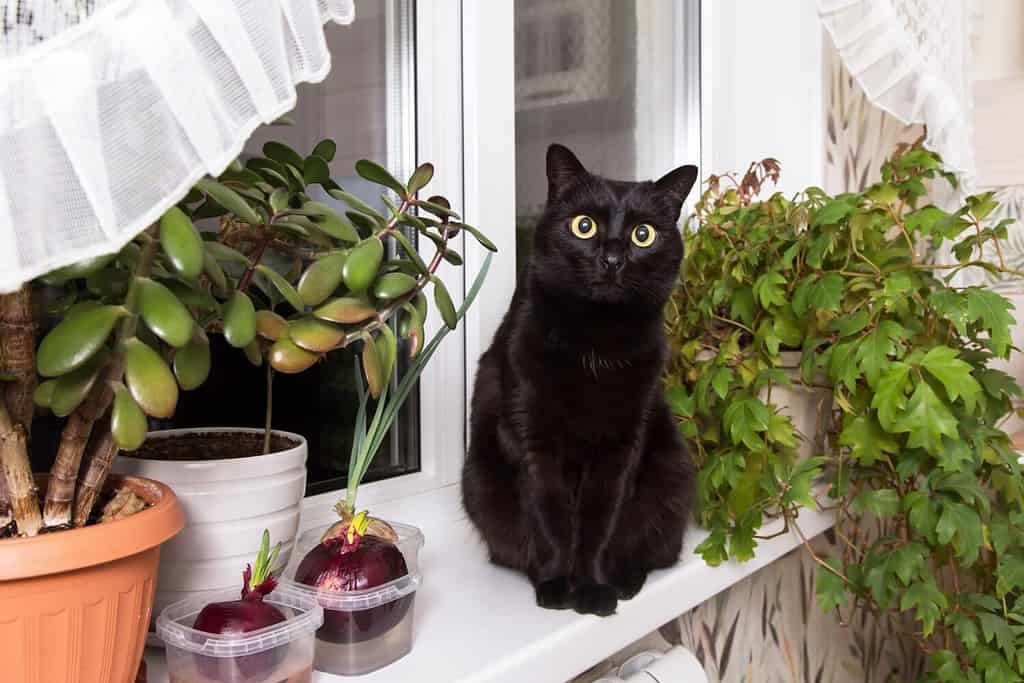
Indoor cats have a longer lifespan than outdoor cats, who face more dangers.
©Viktor Sergeevich/Shutterstock.com
What’s the average lifespan of a house cat?
While all cats will die someday, it’s sometimes helpful to know the average lifespan of your pet to prepare for the eventuality. Depending on the breed, most indoor cats can live anywhere from 10 to 20 years. Outdoor cats have shorter lifespans, partly due to the inherent dangers of the outdoors, living 2-5 years.
Most cats overall live an average between 13 and 17 years, with some lucky individuals sticking around over 20 years.
The Bottom Line
The emotional cost of putting a cat down and saying goodbye to a beloved family member is one of the hardest things many people will experience. Thankfully, euthanasia is one of the most humane options available, allowing cat owners to say their final goodbyes and end their animal’s suffering.
After exploring other available courses of action, talk with your vet to decide whether euthanasia is the best option for your pet. Your vet will help answer any questions and guide you through the process as respectfully and compassionately as possible.
The photo featured at the top of this post is © Oporty786/Shutterstock.com
Thank you for reading! Have some feedback for us? Contact the AZ Animals editorial team.







